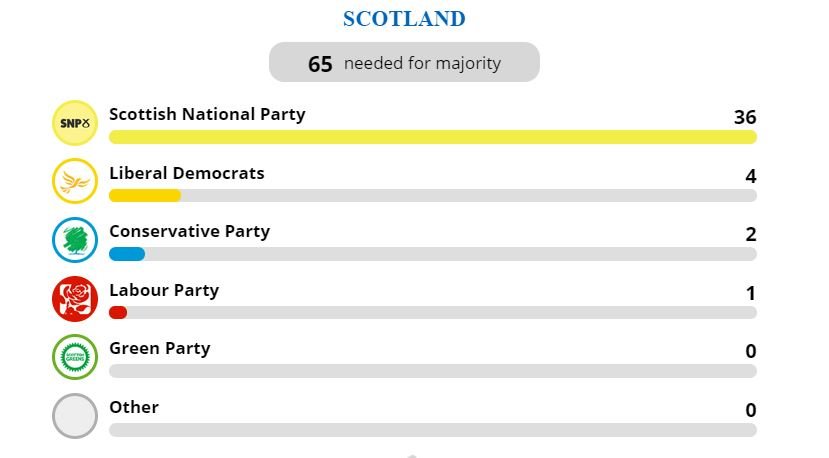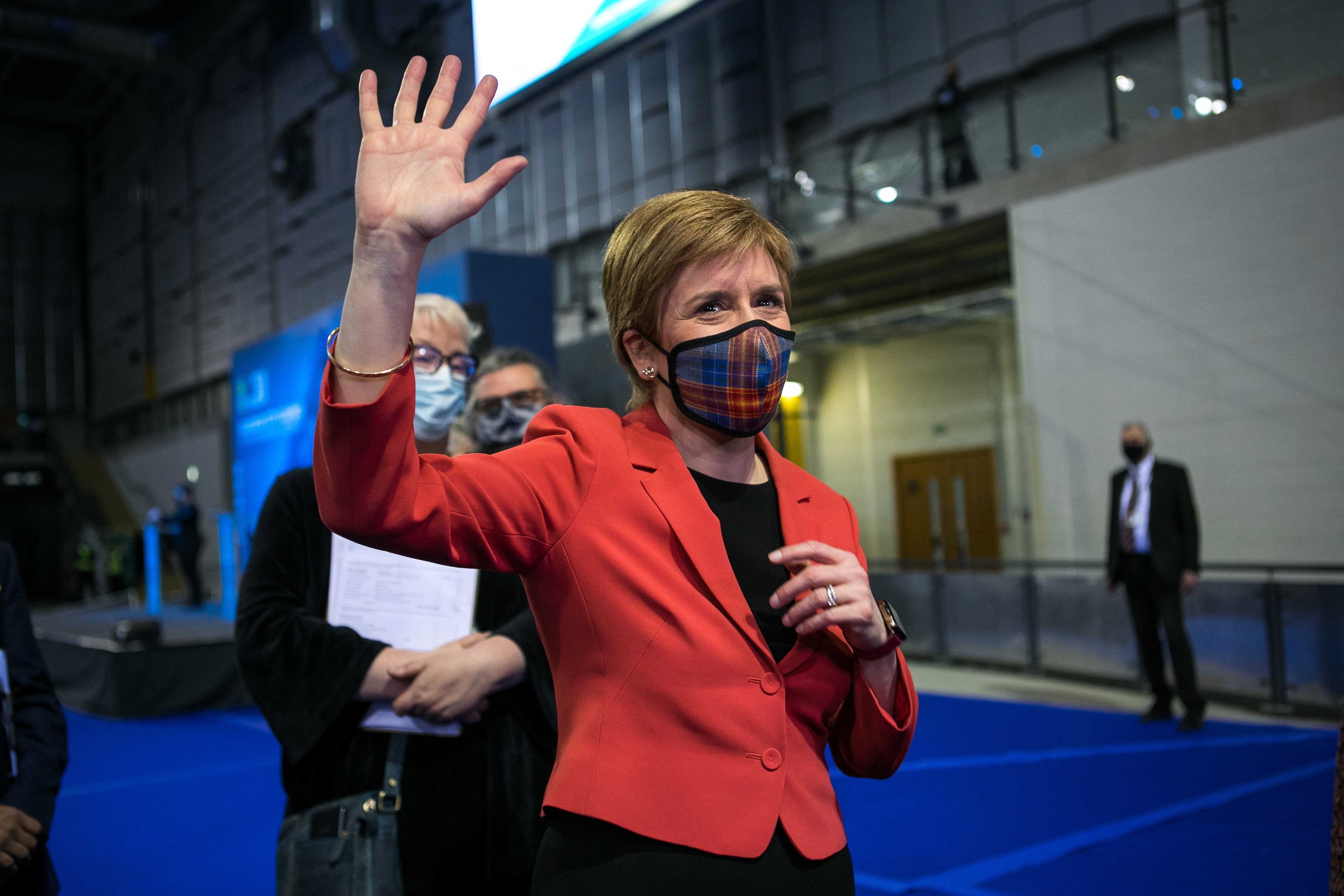The major Scottish pro-independence political group, Nicola Sturgeon's Scottish National Party (SNP), has moved well ahead in the vote count, after Thursday's election for a new Scottish Parliament. With 44 seats decided (when an absolute majority is 65), the SNP has won 36, the Liberal Democrats 4, the Conservative Party 3, and the Labour Party 1.
The pro-independence party has achieved three important gains, one seat previously held by Labour and two from the Conservatives. The rest were seats it held after winning them in previous elections. At this point, according to observers quoted by the BBC, the SNP requires only 3 further gains from the unionist opposition to achieve the absolute majority which is its goal, as long as it retains all its traditional constituencies.
One of the highlights is that the SNP has easily won the seat held by former Scottish Conservative leader Ruth Davidson in the Central Edinburgh district.
Sturgeon herself easily won the showdown with Scottish Labour leader Anas Sarwar in Glasgow Southside constituency. Sturgeon won with 9,456 votes, only marginally below the 9,593 she received in 2016.

Of the 129 seats, 73 - elected by a first past the post system - are elected from the constituencies, one per electorate, while the other 56 are additional members decided by a proportional system - and are selected from lists. Results of most of the 73 constituency seats are expected to be known this Friday, but Scots will have to wait until Saturday to have the full results.
The results are being closely watched by British prime minister Boris Johnson following the SNP leader's election promise to hold a new referendum on independence, when Scotland emerges from the Covid-19 crisis.
For electoral purposes, Scotland's 73 constituencies are grouped into eight regions - Central Scotland, Glasgow, Highlands & Islands, Lothian, Mid-Scotland & Fife, North East Scotland, South Scotland and West Scotland. From each region, under a proportional calculation formula, seven further members are decided. Hence, the 56 list MPs which will a place in the Parliament in Edinburgh.
Unlike in other elections, this time there were no exit polls at the end of the vote last night, nor predictions by the various political formations. Four million people had the right to vote in the Scottish elections.
These elections have become a key moment for the Scottish independence movement in its efforts to hold a second referendum on leaving the UK. The most important aspect in the election is not who will win or whether the Scottish National Party (SNP) will be able to form a government, but how much support the party will have - along with other pro-independence formations, if they reach Parliament - to press Downing Street to hold a second IndyRef.
The latest YouGov poll favours the party led by Nicola Sturgeon, giving it about seven more MPs than it currently has. That is, the SNP would go from 63 to 70 seats, and would get an absolute majority in the Holyrood Parliament, so it could rule alone. But we will have to wait for the court to conclude.

